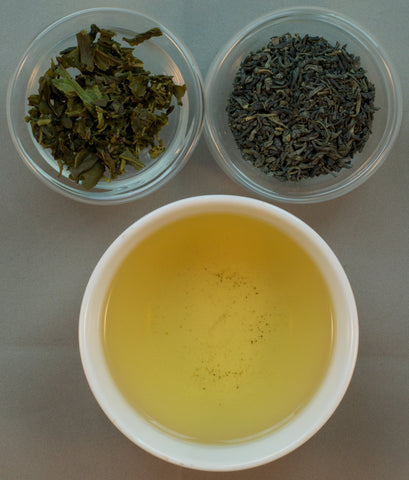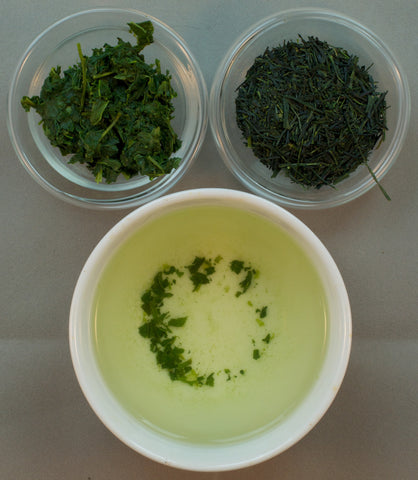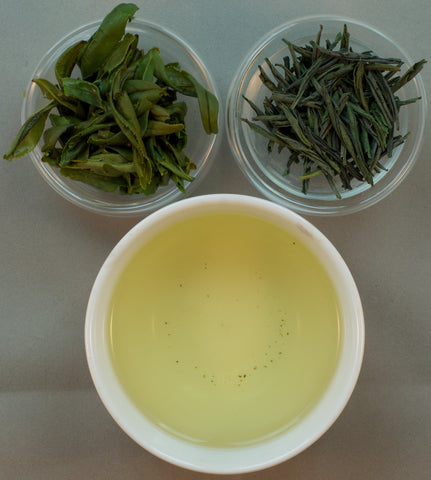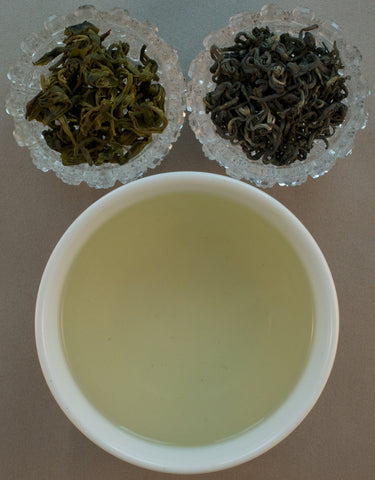This tea continues my romance with purple tea. I’ve kept this tea constantly in my personal stash because I love it so much and finally decided to add it to the Leaves of Cha tea chest. Its unique taste is definitely purple; with notes of its yan cha (rock tea) pedigree and big leaf yunnan assamica processed into a green tea. For those looking for that mysterious and elusive Cha Qi, or the energy or life force of tea, this might be a place to look. It’s definitely a tea that I have felt strong Cha Qi while drinking.
Provenance:
-
Origin: Ya Kai Village, Jing Mai Mountains, Lancang County, Yunnan Province, China
-
Grower/Teamaster: Ya Kai Village Tea Cooperative
-
Elevation: 1500 meters
-
Harvest Date: Spring 2021, first flush
-
Cultivar: Zi Juan, a modern cultivar propagated through cutting/cloning
-
Cultivation: Natural methods with no spraying.
-
Plucking Standard: 1 leaf to 1 bud
-
Nickname: Purple Beauty
-
History/Pedigree: Purple Beauty tea trees were developed by the Yunnan Tea Research Institute beginning in the 1980’s, culminating in this big leaf, medium bud variety.
Brewing Suggestions1:
-
Water: 170-180˚F
-
Tea: 2g per 4oz of water (about a level 1 TB2)
-
Infusion: 2 minutes for 2-3 infusions
Tasting Notes:
- The tea liquor is a grey-purple color and the brewed leaves of this varietal remain dark and vibrantly purple-green after infusion. Intense aroma, a hint of umami, with sweetness, and slight bitter after-taste where the characteristic purple taste comes through. The tea is packed with cha qi, so be ready if you are open and receptive to it.
1 Brewing suggestions are just that. Try it the suggested way then experiment. In this case I suggest experimenting with an “Eastern” style infusion: double the quantity of tea per oz of water and do short infusions of 5 sec, 10 sec, 15 sec, 30 sec, 45 sec, and then 1 minute infusions until the tea is steeped out. I usually use a much smaller infusion vessel for this style, maybe 2-4oz as I am going to get so many infusions out of the tea. You can also experiment with temperature as the tea can handle hotter water with the short infusion times. Some tea drinkers like to use slightly hotter and longer times for each subsequent infusion.
2 Weighing your tea is always the best way to control your dosage. I provide approximate volume measures for convenience but they can be problematic due to the variance in tea leaf shape and size. It’s best to use the single appropriate volume measure for the tea, i.e., don’t try to measure 1.5TB using two spoons meant to measure 1 TB and a ½ TB. Use an actual 1.5 TB measuring spoon. Yes, they make them! I like the oblong ones to handle longer leaf styles.



